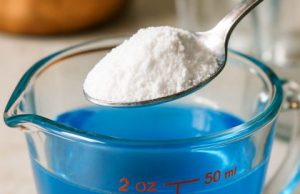
If you’re used to eating apples and discarding the peels, you’re missing out. You should never throw away the peels of this fruit because they have incredible properties and can be recycled in a brilliant way – let’s find out how.
The apple is a truly valuable fruit. It has many benefits and practically no “contraindications”. It contains no fat, no protein, and no sugar, and it even has very few calories. Almost all diets recommend it because it’s good for health.
However, what if we told you that discarding apple peels is improper? You should soak them in a jar instead of throwing them in the trash even if they constitute food waste. You’ll be surprised by the reason: Go here to learn more about it.
NEVER discard apple peels.

One of the most widely consumed fruits worldwide is the apple. Although it is frequently consumed unpeeled, not everyone is aware that the peel contains all of the fruit’s nutrients and qualities. It’s even advised not to peel it before eating.
Reuse the fruit peels instead of throwing them in the trash if you decide not to eat the fruit. An apple should naturally be cleaned with water and baking soda before eating. According to a recent study, baking soda mostly gets rid of pesticide residues on fruit. It’s also crucial to constantly verify the source.
However, how are apple peels reused?
There’s an amazing cure that you should not pass up: Continue reading.
How are apple peels used?
The flawless approach You want to discard the excess apples that you’ve accumulated, but it’s not the best decision. Apple peels can be used to make a tasty apple cider vinegar. The process is pretty easy to follow. A sterilized jar, water, apple peels or other leftovers, and one tablespoon of honey per liter are the first things you’ll need.
First, fill the jar more than halfway with the peels. Next, combine the honey and lukewarm water, then pour the liquid into the jar until all of the peels are submerged. Use a cloth to close the jar and a rubber band to keep it closed.
All you have to do is keep the vinegar somewhere warm and out of the cold for about four weeks. It is specifically advised to store it at 20 degrees.
Once a week or so, check on it and use a spoon to scrape off the white patina. Your vinegar is now ready to be consumed at this point. It is best to bottle it in glass bottles and keep it refrigerated. This method yields a delicious apple cider vinegar that goes well with any type of spice.




















